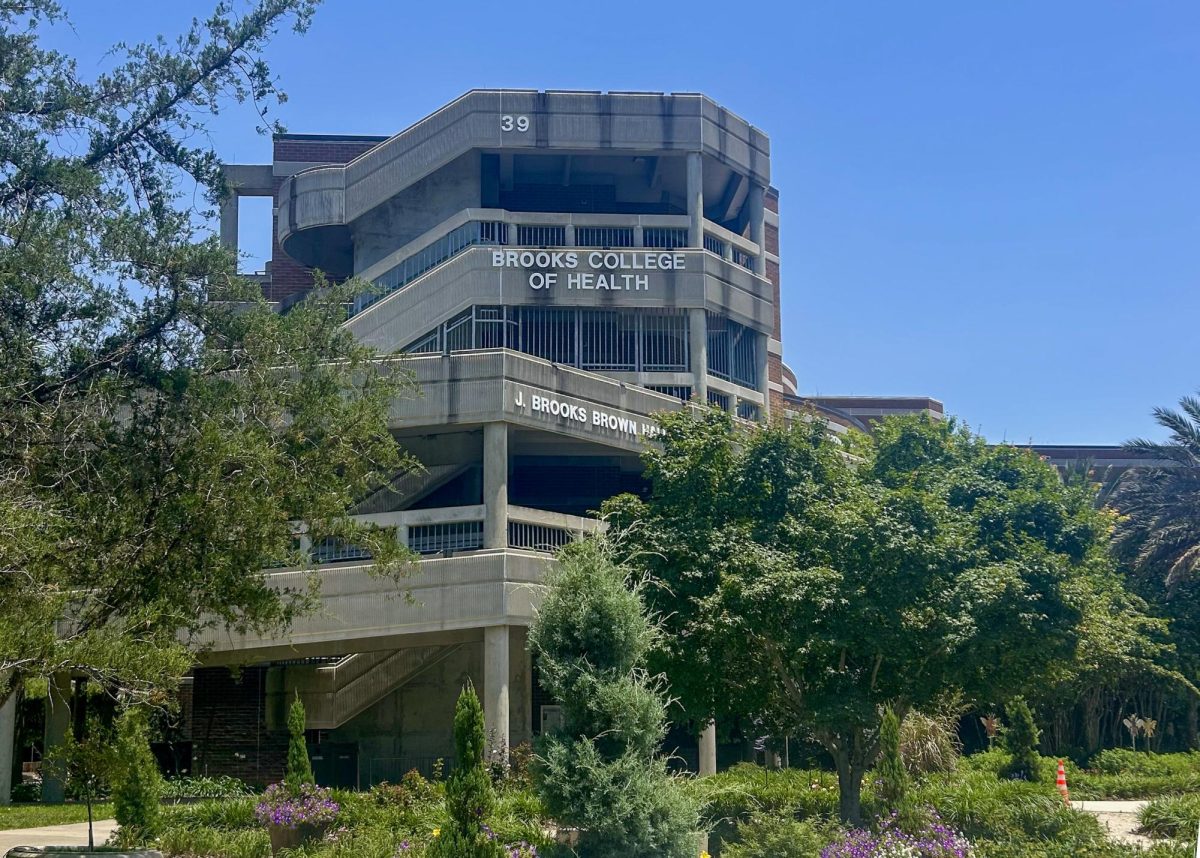Have you ever wondered where those old, no-longer-used textbooks go after you drop them in the donation box outside of the UNF Bookstore? Maybe you’ve never even noticed the donation box or you’ve wondered about why there isn’t a single plastic bag to be had there. Spinnaker reached out to Matt Davidson, Manager of the UNF Bookstore, to get all these answers and more.
The UNF Bookstore has been plastic bag free since 2011.
While Davidson couldn’t give a specific number, he estimates that our very own UNF Bookstore has prevented the use of over 250,000 plastic bags since 2011. Their reusable cloth bags help in the effort to eliminate plastic bag use and, if you don’t feel like buying a $2 cloth bag, you can always request a paper bag. If you buy online, expect to receive a cardboard box or paper envelope.
And yes, while cardboard isn’t the best eco-friendly option, the Bookstore tends to save the same boxes the books were delivered in for repackaging to you, and shipping out unsold overstock.
“As a voting member on the sustainability committee here at UNF, I am always looking for new, innovative ways to save resources and help the environment,” Davidson shared. “If there are enhanced shipping methods in the industry, I am happy to try them out.”
Selling your textbooks back to the store at the end of the semester helps the environment and puts cash back in your pocket.
Strapped on cash at the end of the semester? Selling back to the UNF Bookstore might not just benefit your wallet, but also the environment.
“Our buyback practices are one of the most sustainable options we offer. By purchasing textbooks that students no longer need and selling those books as used or offering them as lower cost rentals, we greatly reduce UNF’s textbook waste,” Davidson told Spinnaker. “The more terms a professor uses the same book, the longer these books can be used and reused, resulting in less raw materials needed to produce more books and subsequently fewer items in landfills.”
In the case of books that come with homework codes inside, there is concern about the plastic wrap used to protect the one-use codes, but Davidson has a solution for over 4,000 students in various courses participating in Follett Access this semester.
“Card stock access codes are being phased out,” he said. “Follett Access is becoming a very popular alternative to the traditional card stock codes.”
With Follett Access, students will be able to access their course materials on the first day of class through email. That’s right. The textbooks are virtual, meaning no packaging and no shipping. Ultimately, that means no waste. Again, it can also help your wallet, since payment for Follett Access doesn’t go through until after the add/drop period, meaning you wouldn’t be stuck paying for books if you ended up dropping the course the first week after finding out it wasn’t for you.
According to Matt Davidson, 25 courses are participating in Follett Access this semester.
And if there’s a class where Follett Access isn’t an option and you know the professor is only going to use the book just this one semester or it’s the last semester before that textbook is being retired, the UNF Bookstore makes sure those books don’t go to waste either.
“We donate hundreds of books a year to Better World Books, who, in turn give our old books new life.”
As a parting thought, Matt Davidson added, “I believe there is always room for improvement and all of us at the UNF Bookstore are always looking for ways to make course corrections that support the campus-wide effort and protect the environment.”
—
For more information or news tips, or if you see an error in this story or have any compliments or concerns, contact editor@unfspinnaker.com















